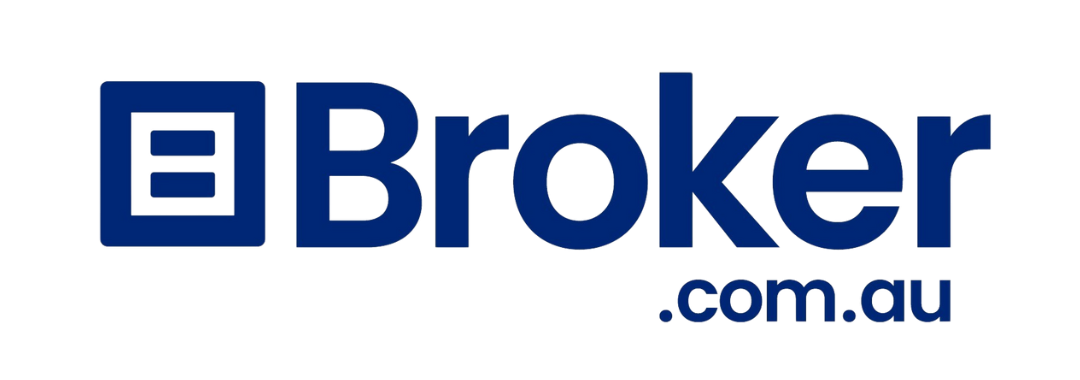Australian Hospitality Business Finance Guide

Share this guide
The hospitality industry in Australia is a vibrant and dynamic sector, encompassing cafes, restaurants, pubs, bars, eateries, and more. Whether you’re launching a new café in Melbourne, expanding a restaurant chain in Sydney, or revitalising a regional pub, securing the right financing is critical to success. This guide explores key financial considerations for hospitality business owners, including tax obligations, managing Australian Taxation Office (ATO) debt, leveraging personal property for lending, and the benefits of working with an experienced finance broker like the team at Broker.com.au.

Understanding Tax Obligations in Hospitality
Running a hospitality business involves navigating a complex tax landscape. Key tax obligations include:
- Goods and Services Tax (GST): Hospitality businesses must register for GST if their annual turnover exceeds $75,000. This involves charging 10% GST on most food and beverage sales (except for certain exempt items like basic food) and remitting it to the ATO. Proper GST management ensures compliance and avoids penalties.
- Pay As You Go (PAYG) Withholding: If you employ staff, you’re required to withhold tax from their wages and report it to the ATO. This is particularly relevant for hospitality businesses with high staff turnover, such as casual workers in cafes or bars.
- Business Activity Statements (BAS): Most hospitality businesses lodge BAS quarterly, reporting GST, PAYG withholding, and other obligations. Accurate record-keeping is essential to avoid errors that could lead to ATO audits.
- Fringe Benefits Tax (FBT): Providing staff with benefits like meals or accommodation may trigger FBT liabilities, which need careful management to minimise costs.
Example: Sarah owns a bustling café in Brisbane. She underestimated her GST obligations, leading to an unexpected $15,000 tax bill. Without sufficient cash reserves, she faced penalties and interest from the ATO. By working with a finance broker, Sarah secured a short-term business loan to clear the debt, allowing her to maintain compliance and focus on growing her café.
Why It Matters: Unmanaged tax obligations can strain cash flow, especially in hospitality where margins are often tight. Falling behind on ATO payments can result in penalties, interest, and difficulty securing finance, as lenders view ATO debt as a red flag.
ATO Debt and Its Impact on Lending
ATO debt can significantly hinder your ability to secure financing for your hospitality business. Lenders assess ATO debt as a sign of financial distress, reducing your creditworthiness. However, having a repayment plan in place with the ATO can mitigate this risk.
- Lender Scrutiny: Banks and alternative lenders often require proof that ATO debts are under control, such as an active payment plan or cleared liabilities. Unresolved debt can lead to loan rejections or higher interest rates.
- Cash Flow Constraints: ATO debt repayments divert funds from operational needs like inventory, staffing, or marketing, making it harder to demonstrate financial stability to lenders.
- Solutions: Negotiating a payment plan with the ATO shows lenders you’re proactively managing your obligations. Some lenders specialise in financing businesses with ATO debt, offering tailored solutions like inventory finance or short-term loans.
Example: James, who runs a pub in Adelaide, accumulated $50,000 in ATO debt due to a slow season and unexpected repair costs. His bank declined a loan application, citing the debt as a risk. By engaging Broker.com.au, James was connected with a lender offering a $60,000 inventory finance facility. This allowed him to clear his ATO debt and restock his bar, improving cash flow and enabling him to secure better terms on a subsequent expansion loan.
Why It Matters: ATO debt doesn’t have to derail your business plans. An experienced broker can identify lenders willing to work with businesses in this situation, ensuring you access finance without compromising growth.

Leveraging Personal Property for Business Lending
Many hospitality business owners own personal property, such as a home or investment property, which can be leveraged to secure finance. This is particularly useful for startups or businesses with limited trading history, common in the hospitality sector.
- Equity as Collateral: Using property as security can unlock larger loan amounts or better interest rates. For example, a home equity loan or a secured business loan can provide funds for renovations, equipment purchases, or working capital.
- Risk Considerations: Leveraging personal property increases risk, as defaulting on the loan could result in the loss of your home. Ensure repayment terms align with your business’s cash flow to mitigate this risk.
- Loan Types: Options include commercial property loans, equipment finance, or lines of credit secured against property. Lenders may offer up to 80% of the property’s value, depending on your financial profile.
Example: Emma, who owns a restaurant in Perth, wanted to open a second location but lacked sufficient business assets to secure a loan. By using her personal property, valued at $800,000, as collateral, she accessed a $500,000 commercial loan through Broker.com.au. This funded the fit-out of her new venue, which became profitable within six months, allowing her to refinance and release the property as security.
Why It Matters: Personal property can be a powerful tool to access capital, especially for hospitality businesses with seasonal cash flow or limited business assets. A broker can help structure the loan to minimise personal risk while maximising business growth.

Why Choose Broker.com.au for Hospitality Financing?
Navigating the financial landscape of the hospitality industry requires expertise, especially given its unique challenges like seasonal fluctuations, high staff costs, and thin margins. The award-winning team at Broker.com.au offers unparalleled support to help you secure the best finance facility for your business.
- Extensive Lender Network: Broker.com.au connects you with hundreds of lenders, from major banks to niche financiers specialising in hospitality. This ensures access to tailored solutions, whether you need equipment finance for a new espresso machine or a working capital loan to cover peak season staffing.
- Expert Guidance: With years of experience, Broker.com.au’s team understands the hospitality sector’s nuances. They can negotiate favorable terms, even if you have ATO debt or limited trading history, ensuring you get competitive rates and flexible repayment schedules.
- Personalised Solutions: Every hospitality business is unique. Broker.com.au takes the time to understand your goals—whether you’re a café owner needing a $20,000 loan for a refurbishment or a pub operator seeking $1 million for an expansion—and matches you with the right lender.
- Streamlined Process: From application to settlement, Broker.com.au handles the paperwork, saving you time and reducing stress. Their expertise ensures compliance with lending requirements, minimising delays and rejections.
Example: Tom, who owns a bar in Sydney, needed $200,000 to upgrade his outdoor seating area to comply with new regulations. His initial loan application was rejected due to seasonal revenue dips. Broker.com.au reviewed his financials, identified a lender familiar with hospitality cash flow patterns, and secured a loan with a 12-month interest-only period, allowing Tom to complete the upgrade and boost revenue before principal repayments began.
Why It Matters: The hospitality industry demands agility and financial precision. Partnering with Broker.com.au ensures you access the best financing options, backed by a team dedicated to your success. Their award-winning service, recognised for excellence in the industry, means you can trust them to deliver results tailored to your business needs.
Conclusion
Running a hospitality business in Australia is both rewarding and challenging. From managing tax obligations to overcoming ATO debt and leveraging personal property, securing the right finance is key to thriving in this competitive sector. By partnering with Broker.com.au, you gain access to expert advice, a vast lender network, and personalised solutions that empower your business to grow. Whether you’re opening a new eatery, upgrading a bar, or expanding a restaurant chain, Broker.com.au’s experienced team is your trusted partner in achieving financial success.
For more information or to explore financing options, contact Broker.com.au today and take the first step toward unlocking your hospitality business’s potential.
